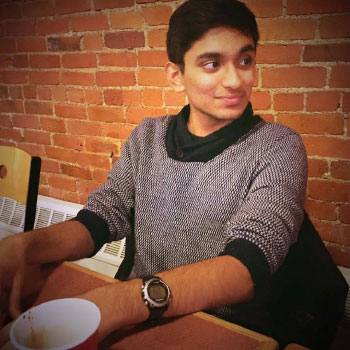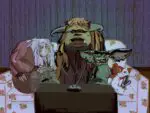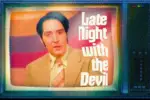It seems as if Casiano Hamer eats, sleeps and breathes film. Growing up, he would watch everything under the sun with his grandmother; now, he attends one of New York City’s many movie theaters to seek inspiration for his films. However, for the longest time, Hamer was consumed by the world of sports, particularly baseball. His new short, “STUD,” takes a raw, gritty, yet elegant look at the world of baseball and draws from his own experiences with the pressures that are part and parcel of athletics.
An intensely psychological endeavor, “STUD” is rife with cinematographic nods to acclaimed films such as last year’s Best Picture-winner, “Moonlight,” and the French director Claire Denis’ “Beau Travail.” The Pratt Institute senior’s cinematic inclinations are manifold, but Hamer is ultimately bent on creating films that both challenge viewers’ ideas about the lives of people of color and grant them fresh perspective on life.
“Film is the way I digest the world around me. My favorite thing to do as a kid was to sneak into six different films with my family.”
“My grandmother was the person who I’d talk about films with. We’d watch all types of films, but most of them were dramatic and dark, and we’d have great conversations about them. It was after she passed away right before junior year of highs school that I decided that film was something to pursue.”
“Both of my parents were super athletic. One of them almost made it to Olympic tryouts. I definitely showed talent in sports growing up, especially baseball.”

“There was a point when I realized that I was fighting so hard to just get on a varsity baseball team when I wasn’t even sure if baseball was what I really wanted to do. I knew I had a creative side. I knew I had an intellectual side that I was able to excel in with my writing in school that I couldn’t communicate at all through baseball.”
“There’s a ‘me now’ that understands the toxic masculinity in my life. There’s the ‘me then’ that trusted my father and coaches. It’s complicated to me because I don’t really see it as toxic masculinity: being pressured all the time has helped me in my filmmaking. What I wanted to capture in ‘STUD’ was the feeling of what it’s like to have people in your life telling you what you’re going to do.”
“There’s this expectation that stories about people of color have to be about suffering. And don’t get me wrong, ‘Moonlight’ was an amazing film, but suffering isn’t the only aspect of black life. What I’m trying to do is subvert that. I want to show stories of life from my perspective.”
“Film can show that people of color are like any other American. No one has seen a film where black people or Hispanic people or Asian people are talking about philosophy in the south of France, but you see plenty of films about white people that are like that. For example, ‘Phantom Thread’ is about a postwar fashion designer — if those kinds of films existed for people of color, it would articulate our role in that history and show that we’ve done things in the same intellectual vein as well.”
“If I could have it my way, I would shoot a feature independent that would get picked up by A24 or Annapurna, those $5 million budget films you see at the Oscars, every two or three years.”
“I think there are more incredible things to come in terms of making films digitally. And With programs like Moviepass, I think people will start appreciating going to the movie theater more often. It’s also becoming a trend to give praise to films about people of color or the LGBTQIA community, so hopefully we’ll see that be the norm and not something that’s so unique that you either have to love it or you can’t understand it. I’d love for it to be the case that we see films like that all the time now.”

















